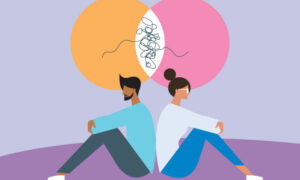In a world filled with opportunities and challenges, personal development stands as a constant beacon, guiding us on a quest for self-fulfillment and success. The transformative journey of personal growth is an ever-evolving process that requires dedication, perseverance, and a hunger for continuous improvement. As we delve deeper into this pursuit, we unravel the intricacies of our being, unlock hidden potential, and build the resilience needed to navigate life’s twists and turns.
Personal development, also known as self-improvement or self-growth, refers to the process of attractive one’s skills, knowledge, abilities, and overall well-being. It involves a conscious effort to evolve and reach one’s full potential in various aspects of life, including emotional, mental, physical, and social well-being. Personal development is a lifelong journey that requires self-awareness, goal-setting, and continuous learning and growth.
Key areas of personal growth:
Key areas of personal development include:
1. Self-awareness
Understanding your strengths, weaknesses, values, beliefs, and emotions. Self-awareness is the foundation of personal development as it helps you identify areas for improvement and recognize patterns that may hinder your growth.
2. Goal setting
Defining clear and achievable goals for different areas of your life, such as career, relationships, health, and finances. Setting specific, calculable, achievable, relevant, and time-bound (SMART) goals can help you stay focused and motivated.
3. Continuous learning
Committing to lifelong learning and expanding your knowledge and skills. This can involve formal education, reading books, attending workshops or seminars, taking online courses, or seeking mentorship.
4. Time management
Learning to manage your time effectively to prioritize tasks and activities that align with your goals. Good time management allows you to make the most of your day and avoid procrastination.
5. Emotional intelligence
Developing the ability to recognize, understand, and manage your emotions and the emotions of others. Emotional intelligence helps improve communication, empathy, and relationships.
6. Health and well-being
Taking care of your physical and mental health through regular exercise, balanced nutrition, sufficient rest, and stress management. A well body and mind are essential for personal growth.
7. Communication skills
Enhancing your ability to express yourself clearly and listen actively. Effective communication is crucial for building strong relationships and resolving conflicts.
8. Networking and social skills
Building and nurturing a supportive network of people who can offer guidance, inspiration, and opportunities for growth.
Related: Steps to create a supportive community.
9. Financial management
Learning to manage your finances wisely, including budgeting, saving, and investing. Financial stability provides a sense of security and freedom to pursue personal goals.
10. Resilience and adaptability
Developing the ability to bounce back from challenges and adapt to change. Resilience is essential in overcoming obstacles and maintaining a positive outlook.
11. Mindfulness and meditation
Practicing mindfulness and meditation can help reduce stress, increase focus, and promote a sense of calm and clarity.
Remember that personal development is not a linear process, and it’s essential to be patient with yourself. Celebrate your progress, no matter how small, and be open to making adjustments along the way. Regularly reassess your goals and priorities as you grow and evolve in different stages of life.
Strategies:
In this extended article, we will explore the significance of personal development and delve into practical strategies to integrate its principles into our lives.
1. The Inner Journey: Embracing Self-Discovery
Personal development commences with the profound voyage of self-discovery. As we venture into the depths of our psyche, we unearth our passions, values, and aspirations. Engaging in introspection through mindfulness practices, such as meditation and self-inquiry, allows us to connect with our authentic selves and understand the intricacies of our thoughts and emotions. This newfound awareness becomes the cornerstone on which we can construct a purposeful life.
2. Vision and Goal Setting: Crafting the Blueprint of Success
Crafting a vision for our lives enables us to chart a course toward the future we desire. A compelling vision acts as a driving force, pushing us to transcend obstacles and persevere in the face of adversity. Alongside vision, setting SMART goals creates a roadmap for progress, delineating clear objectives that align with our purpose. Regularly revisiting and refining our goals empowers us to maintain focus and adapt to changing circumstances.
3. Embracing Change and Adversity: The Catalysts of Growth
Change and adversity are inevitable companions on the journey of personal development. Rather than shying away from these formidable forces, embracing them becomes a catalyst for profound growth. Each challenge is an opportunity to refine our character, build resilience, and develop problem-solving skills. By reframing setbacks as learning experiences, we transform stumbling blocks into stepping stones toward success.
4. The Power of Habits: Sculpting Our Destiny
Our habits shape the trajectory of our lives. Cultivating positive habits and eliminating detrimental ones are essential aspects of personal development. Habits are formed through consistent repetition, and incorporating routines that nurture our physical, mental, and emotional well-being becomes crucial. Adopting habits like regular exercise, mindful eating, and seeking new experiences helps us create a foundation for a healthy and purposeful life.
5. Lifelong Learning: The Key to Unlocking Potential
In the quest for personal development, learning is a lifelong companion. From formal education to informal experiences, a curious mind thrives on continuous learning. By staying open to new ideas and perspectives, we expand our intellectual horizons, develop critical thinking skills, and adapt to the evolving world around us. Reading diverse literature, attending workshops, and engaging in stimulating conversations are gateways to unlocking our full potential.
6. Cultivating Emotional Intelligence: The Art of Human Connection
Emotional intelligence is the ability to understand and manage our emotions and empathize with others. Nurturing emotional intelligence enhances our communication skills, strengthens interpersonal relationships, and fosters a supportive community. Practicing active listening, expressing empathy, and managing conflict constructively are key components of emotional intelligence that contribute to our personal and professional success.
Conclusion
Personal development is a lifelong pursuit that intertwines with the essence of our existence. It challenges us to dive deep into self-discovery, envision a purposeful future, and navigate the winds of change with grace. Through a commitment to cultivating positive habits, embracing challenges, engaging in continuous learning, and developing emotional intelligence, we embark on a path that leads to personal fulfillment and success. As we embrace this transformative journey, let us remember that personal development is not a destination but a beautiful, evolving process that molds us into the best version of ourselves. Let us embrace it with courage, resilience, and an unwavering desire to achieve our highest potential.





















